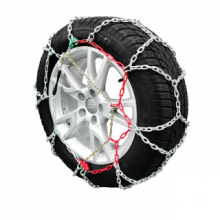
Select your Model
| Model | Year | hiddenanno |
|---|---|
| CHEROKEE (XJ) | 1983 >> 2001 |
| GRAND CHEROKEE I (ZJ, ZG) | 1991 >> 1999 |
| GRAND CHEROKEE II (WJ, WG) | 1998 >> 2005 |
| GRAND CHEROKEE IV (WK, WK2) | 2010 >> . . . |
| RENEGADE Closed Off-Road Vehicle (BU, B1) | 2014 >> . . . |
| WRANGLER I (YJ, SJ_) | 1986 >> 1996 |
| WRANGLER II (TJ) | 1996 >> 2008 |
What is a fuel pump?
The fuel pump is part of the automobile's fuel system and allows fuel, either gasoline or diesel, to power the engine. The electric fuel pump meters the correct amount of fuel from the tank before it is fed into the injection system. It is a delicate element that requires reliability and precision, characteristics that can be canceled due to an incorrect assembly of the product: remember that it is necessary to clean and wash the tank before installing the fuel pump in its housing, otherwise, the accumulated dirt in the tank will immediately clog the new fuel pump.
Location of the fuel pump
Normally, the pump is located inside the tank from which the fuel is extracted, but sometimes, for certain vehicles, the pump is placed on the tank. Fuel pumps are divided into two families, those of gasoline engines and those of diesel engines, so they are different to the engine.
The fuel supply system
The fuel pump, in turn, is located inside the largest plastic structure of the fuel supply system, generally consisting of a basket in which the electric pump is located, from pipes and electrical connections, from a float that communicates the level of the fuel contained in the tank, from an upper part from where the pipes exit and, finally, from a useful splint to fix the head of the feeding system to the tank connection. The ring is usually sold separately from the power supply.
The fuel supply system, given its activity, is an essential part of the car's functionality and, in case of failure, the symptoms of the defect are immediately apparent and for an expert mechanic it will not be difficult to identify the problem.
Symptoms of the fuel pump defect
The symptoms of a fuel pump that begins to show the first signs of failure are easily recognizable and can be summarized in the following points:
- the car stutters while driving, and hears different sounds than usual;
- the car is struggling to start or not start;
- loss of power during acceleration;
- Malfunction of the car during acceleration.
Common problems:
One of the main reasons to break the pump, as mentioned above, is to have it clogged with dirt that is deposited over time inside the tank. It is a very common problem in gasoline cars because users often use the car with the gas tank in reserve and this causes a constant entry of waste into the fuel pump that often freezes and becomes unusable. To avoid the appearance of this type of problem in cars with double fuel (Gasoline-LPG), it is suggested first to avoid the operation of the tank in reserve and to periodically renew the gasoline in the tank. If you are in possession of LPG cars, to avoid problems with the fuel system, you should always follow some precautions:
- Do not use LPG always and exclusively;
- Avoid walking with LPG with the tank in reserve;
- Always change the use of fuel and LPG.
- each time the LPG is exhausted, it is recommended to drive at least 50-100 km before using LPG again.





